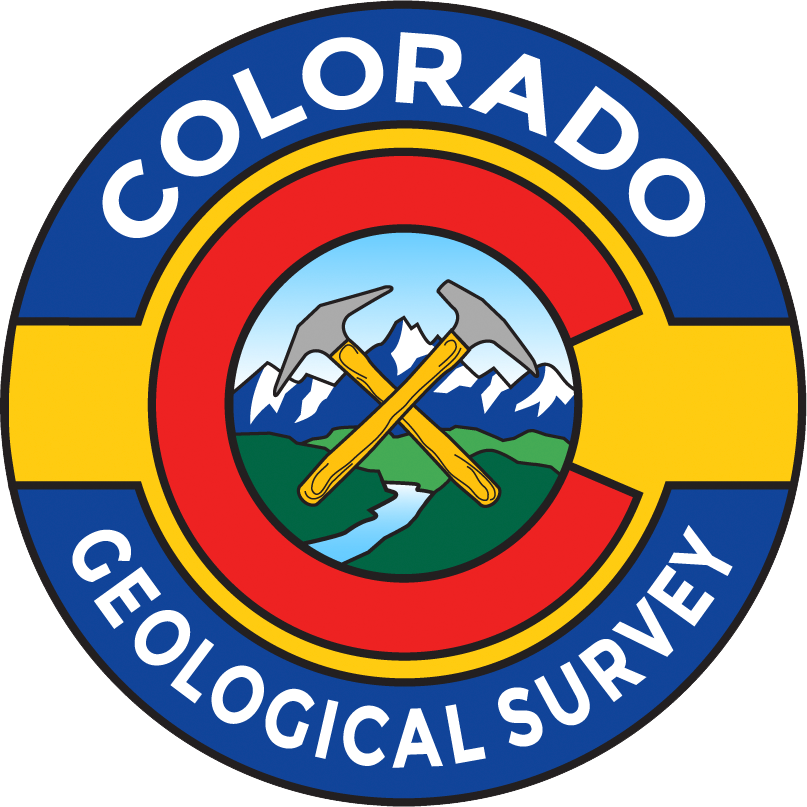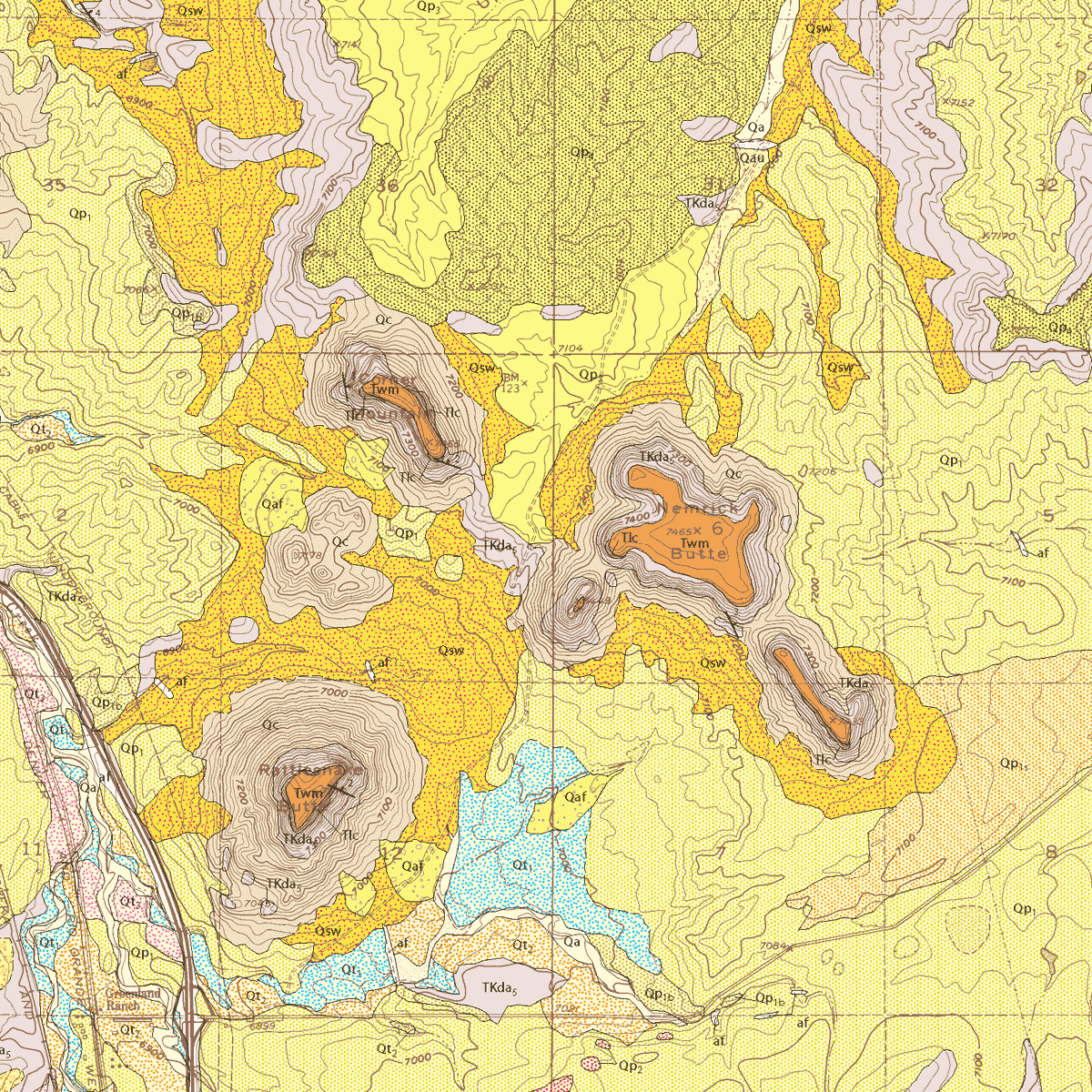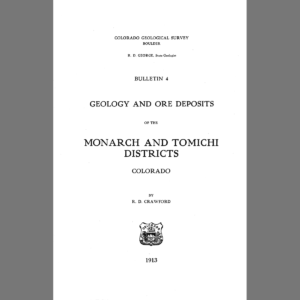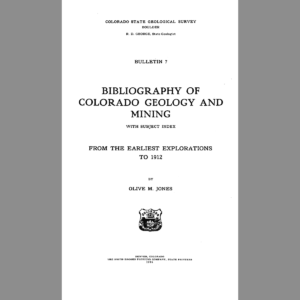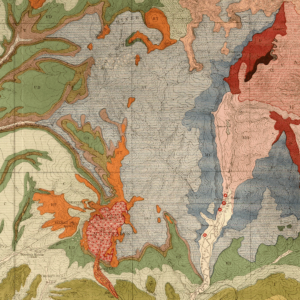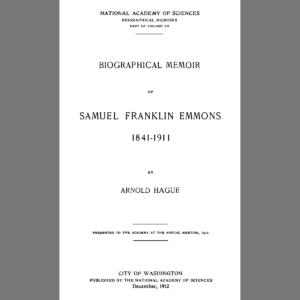Description
This report and map describe the geologic setting and mineral resource potential of this 7.5-minute quadrangle located along the I-25 corridor between Colorado Springs and Castle Rock. Dr. Jon P. Thorson, contract geologist, completed the field work on this project in the summer of 2002. Included in the report is a section on geological hazards by John W. Himmelreich, Jr. Map (1:24,000) includes a list and correlation of map units, cross sections, and an oblique view. A 25-page booklet accompanies the map. Digital PDF download. OF-03-09D
From the Author’s Notes:
The Greenland quadrangle is located near the western edge of an asymmetrical, oval-shaped, geological structural depression called the Denver Basin. This structural basin lies immediately east of the Front Range and covers a large part of eastern Colorado north of Pueblo, southeastern Wyoming, and southwestern Nebraska. The axis of this basin appears to lie beneath the northeastern part of this quadrangle.
Most of the exposed bedrock in the Greenland quadrangle is the assemblage of lithologies shown on the geologic map as the upper part of the Dawson Formation (TKda). At the time of deposition of this unit, during the Paleocene and Eocene Epochs (about 65 to 50 million years ago), the uplift of the Front Range was well underway. Braided streams were delivering to the basin a mixture of gravel, sand, silt and clay derived from weathering and erosion of that uplifted area. The source of the granitic arkosic materials was mostly the Precambrian Pikes Peak Granite located immediately to the west of the Rampart Range mountain-front fault system. Stream flow was generally towards the east. The pebble conglomerate and arkosic sand beds of the Dawson are cross-bedded and fill broad channels generally cut into finer grained deposits of clayey sandstones and sandy claystones. Interbedded with the channel deposits are occasional structureless beds deposited by mudflows. Also interbedded between the coarse grained beds are finer grained and thinner bedded strata of light-gray to gray-green clayey sandstone and brown or brownish-gray sandy claystone containing fragments of organic material and plant fossils. The fine-grained parts of the upper Dawson were deposited by gentler currents in areas between the braided stream channels and probably were covered with vegetation.
